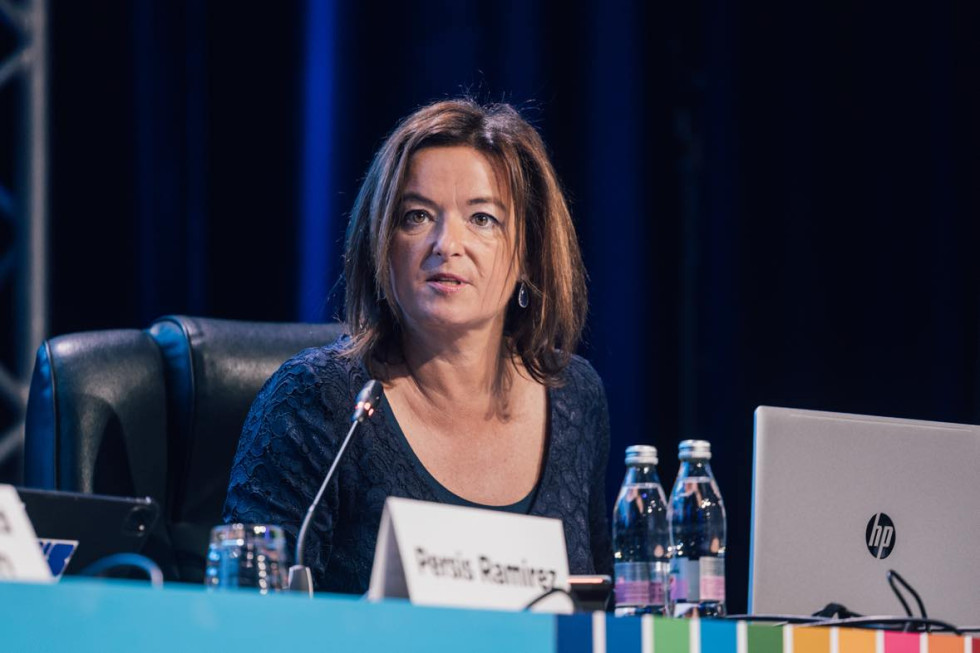Minister Fajon highlights the benefits of transboundary cooperation at the 10th session of the Meeting of Parties to the Water Convention

Minister Fajon shared best practices in transboundary cooperation with participants of the high-level segment panel | Author MZEZ
On the opening day of the Meeting, participants engaged in a key discussion in the high-level segment titled "Our Waters, Our Future: Transboundary Water Cooperation to Power Climate Resilience", with high-level representatives from States Parties and international organisations in attendance. Minister Fajon shared best practices of transboundary cooperation in the Sava and Danube river basins and the first UNESCO Mura-Drava-Danube five-country biosphere reserve, all of which contribute to climate resilience and adaptation. "In 2018, a highly sophisticated flood forecasting and warning system was introduced. It is designed to enhance a sense of security and accountability among all involved countries. This system will be further upgraded and complemented by a low-flow forecasting system," she announced, adding that a climate change adaptation strategy for the Sava River Basin is also under development.
The Minister further highlighted Slovenia's role as a member of the UN Security Council, where we strive to take into account climate and water cooperation as cornerstones for peace and security.
At the Meeting, Slovenia will assume the three-year Presidency of the Water Convention Bureau. Slovenia already holds the presidencies of the Alpine Convention and the Barcelona Convention, and at the end of the year, it will also take over the Presidency of the Danube River Basin Protection Convention. These roles place Slovenia among the leading advocates for transboundary water cooperation, reflecting its longstanding dedication to this field.
Speaking at a partnership event held the day before the Meeting, entitled "Accelerating Transboundary Cooperation and the Implementation of the Water Convention in New Parties through increased support and partnership", Minister Fajon emphasised that the Water Convention provides Parties with a platform for enhanced cooperation, enabling them to more effectively fulfil their commitments through mutual support. She also reaffirmed Slovenia's commitment to sharing its expertise and best practices in the field of transboundary water cooperation.
On the sidelines of the Meeting, Minister Fajon, together with Tomaž Rodič, Director of the Slovenian Centre of Excellence for Space Sciences and Technologies (Space-SI), visited the six-metre high art installation "Konduit", which will be presented by Space-SI to partners from the Jomo Kenyatta University of Nairobi, Kenya. With financial support from the Slovenian Ministry of Foreign and European Affairs, the partners - Space-SI, its satellite, and the Kenyan university - are undertaking a project aimed at mapping river basins. The Konduit installation, currently on display at the Ljubljana Exhibition and Convention Centre, symbolises the importance of communication between science, engineering and society in the field of satellite and digital technologies for transboundary river basin management and the adaptation of local communities to climate change in sub-Saharan Africa and other regions of the Global South.
The 10th session of the Meeting of the Parties to the Water Convention is taking place in Ljubljana from 23 to 25 October.

